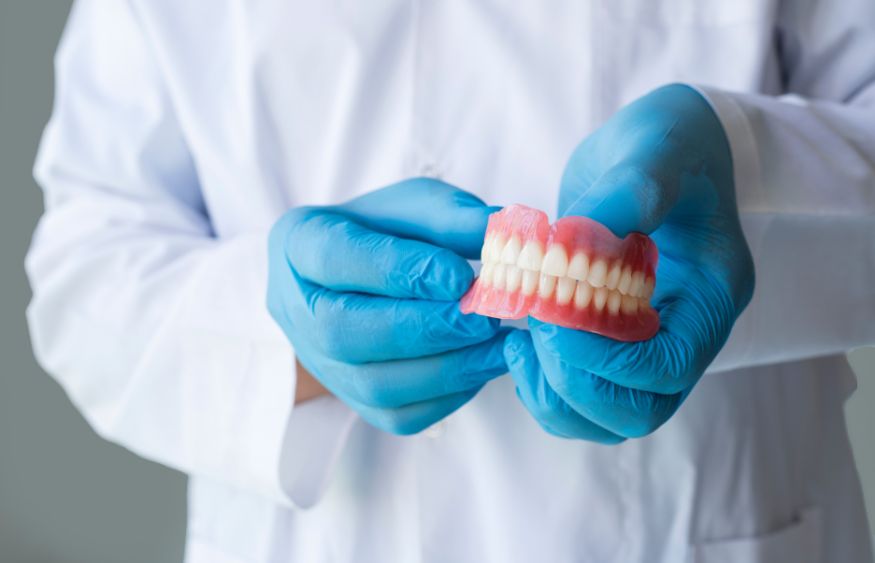
Getting dentures is an important step toward restoring your smile and confidence. Many patients feel nervous before starting the process because they do not know what will happen. Understanding the denture fitting journey can help you feel relaxed and prepared.
If you are planning to get denture fitting in Mumbai, this detailed guide will walk you through every stage. From consultation to final fitting, knowing what to expect makes the experience smooth and stress free.
Dentures are removable dental appliances that replace missing teeth and surrounding tissues. They help restore your ability to chew, speak clearly, and smile confidently.
There are different types of dentures in Mumbai available based on your needs:
Complete dentures
Partial dentures
Immediate dentures
Implant supported dentures
Your dentist will recommend the most suitable option after evaluation.
You may need affordable dentures in Mumbai if you:
Have multiple missing teeth
Struggle with chewing food
Experience speech difficulty
Have severe tooth decay
Have advanced gum disease
Need full mouth tooth replacement
Many patients searching for best dentures clinic in Mumbai choose dentures as a reliable and budget friendly tooth replacement solution.
Understanding the process helps reduce anxiety. Let us go through each stage of denture fitting in Mumbai.
The first step is a detailed dental checkup. During this visit, your dentist will:
Examine your gums and remaining teeth
Check jawbone condition
Review medical history
Discuss your expectations
Suggest the right denture type
If you are visiting a denture specialist in Mumbai, they will also take preliminary measurements of your mouth.
Some patients may still have damaged or loose teeth that must be removed before denture placement.
If extractions are needed:
The dentist will remove problematic teeth
Healing time may be advised
Temporary dentures may be suggested
Many patients looking for tooth replacement options in Mumbai go through this step before final denture fabrication.
Not everyone requires extraction. Your dentist will decide based on your oral condition.
This is one of the most important steps in the denture fitting process in Mumbai.
The dentist takes detailed impressions of your gums and jaw using special dental materials. These impressions help create dentures that fit accurately.
During this step:
Upper and lower jaw impressions are recorded
Bite relationship is measured
Jaw alignment is checked
Accurate impressions are essential for comfortable custom dentures in Mumbai.
After impressions, your dentist records how your upper and lower jaws come together.
This stage helps ensure:
Proper chewing function
Balanced bite
Natural jaw movement
Comfortable speaking ability
Patients searching for perfect denture fitting in Mumbai benefit greatly from precise bite registration.
Before making the final dentures, most clinics perform a trial fitting.
During this visit:
A wax model denture is placed
Fit and comfort are checked
Tooth shape and size are reviewed
Smile appearance is evaluated
Speech is assessed
This step allows adjustments before the final denture is made.
If you visit the best dentures clinic in Mumbai, they will carefully refine the trial for natural results.
Once everything looks good, your final dentures are fabricated and delivered.
At this appointment:
The finished denture is inserted
Fit is carefully checked
Pressure points are adjusted
Care instructions are given
Patients receiving new dentures in Mumbai often feel immediate improvement in appearance.
However, mild discomfort initially is normal and temporary.
Denture fitting does not end on delivery day. Follow up visits are very important.
Your dentist may:
Adjust sore spots
Improve fit
Check bite alignment
Answer your concerns
Most people searching for comfortable dentures in Mumbai achieve the best results after 1 to 3 adjustment visits.
The total time for denture fitting in Mumbai depends on your case.
Simple cases: 2 to 4 weeks
With extractions: 4 to 8 weeks
Complex cases: slightly longer
Modern dental clinics in Mumbai often use advanced techniques to speed up the process.
It is normal to need some time to adjust.
Mild soreness
Increased saliva
Slight speech changes
Feeling of fullness in mouth
These usually improve within a few weeks.
Patients choosing affordable dentures in Mumbai are advised to follow dentist instructions carefully for smooth adaptation.
Follow these expert tips for faster comfort.
Start with soft foods
Cut food into small pieces
Chew slowly
Practice speaking at home
Wear dentures regularly
Maintain proper cleaning
Patients at the best dentures clinic in Mumbai often adapt comfortably within a short time when they follow these tips.
Proper care increases denture life and comfort.
Remove and rinse after meals
Brush dentures gently
Soak overnight in cleaning solution
Clean gums and tongue
Visit dentist regularly
Good hygiene is essential for long lasting custom dentures in Mumbai.
Cost is a major factor for many patients.
Basic dentures: budget friendly
Flexible dentures: moderate cost
Premium dentures: higher range
Implant supported dentures: highest cost
Patients searching for affordable dentures in Mumbai should always compare quality along with price.
Choosing an experienced clinic ensures better long term value.
Selecting the right dental clinic makes a big difference in comfort and durability.
Experienced prosthodontist
Modern dental technology
Positive patient reviews
Transparent pricing
Proper follow up support
Hygiene standards
Many patients prefer Diagnopein for denture fitting in Mumbai because of its patient focused approach and advanced dental care.
The denture fitting process is a well planned and step by step procedure designed to restore your smile, comfort, and confidence. From the first consultation to final adjustments, each stage plays an important role in achieving the perfect fit.
If you are considering denture fitting in Mumbai, choose an experienced and trusted dental provider. High quality dentures not only improve appearance but also enhance chewing ability and overall quality of life.
With proper care and regular follow ups, your dentures can serve you comfortably for many years.